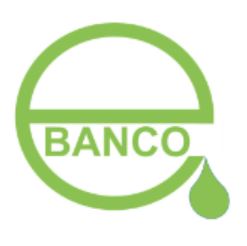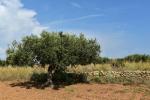
Operational Group: E-bank of sensory patterns of virgin olive oil for the production sector
- Type Operational group
- Status In progress
- Execution 2023 -2025
- Assigned Budget 299.109,22 €
- Scope Autonómico
- Autonomous community Andalucía
The Virgin Olive Oil Sensory Patterns E-Bank Platform for the production sector promotes improved economic performance for olive mills, cooperatives, and industrial producers by facilitating accurate classification of olive oils and differentiating between the highest quality virgin olive oils. This translates into greater economic value for producers and, consequently, increased income for farmers.
The planned E-Bank platform is a technologically advanced, internet-based solution that will enable the ongoing connection and transfer of existing knowledge in sensory analysis to olive oil producers and marketers.
To this end, the EBPS Platform will integrate technological entities, university centers, and research centers specializing in olive oil, cooperative federations, and designations of origin. The flow of knowledge generated will have two uses: on the one hand, the knowledge and technology generating centers will provide the protocols used during the pattern production process; and, on the other hand, the sensory evaluations provided by mobile app users in olive oil mills will be used both for staff training and for the classification of the batches of oil produced.
This networking methodology creates added value through continuous and rapid collaboration between participating research centers, technology centers, and producers, fostering innovation throughout the value chain.
Design and implementation of a system for the industrial production of extra virgin olive oil sensory standards for the production sector, through planning, process monitoring, and logistics from the field to the certification of oils destined for cooperative and industrial olive mills.
The INTERPANEL software, developed for the harmonization of tasting panels in Andalusia, will be integrated into the E-Bank of Sensory Patterns system.
Define a strategy to improve the quality of virgin olive oils produced in Andalusian oil mills based on the use of reference standards that allow for intercomparison and accurate discrimination of oils during the production process, achieving higher market value.
The implementation of this strategy requires the implementation of an online collaboration system that will define action protocols, organize processes throughout the logistics chain for industrial production of the patterns, and manage the knowledge generated for use by the oil mills.
The expected impact will translate into an improvement in the classification of oil batches during the production phase and, therefore, in the economic valuation during the marketing process.
- Name of coordinator/entity: Foundation for the Promotion and Development of Olive Groves and Olive Oil
- Postal address: Calle Sierra Morena, 13A, Terra Oleum Building, Geolit. Technology Park, 23620, Mengíbar, Jaén
- Coordinator/entity email: luis.ortega@fundaciondelolivar.com
- Telephone: 953274976
The innovation proposed through the E-Bank of sensory standards could represent a change in the way we approach the problem of improving the quality of oils produced in oil mills. Currently, the sensory evaluation of oils is limited primarily to authorized tasting panels.
These companies perform evaluations of large batches of oil, primarily those stored in the winery's tanks. Sensory evaluation of oils by mill staff is currently limited to the most technically advanced mills, and this activity is practically nonexistent in most of them. The proposed system of standards and digital platform incorporates sensory evaluation as a more integrated task in the production process, creating a new work routine that is easy to implement and use by mill staff.
Ultimately, the implementation of the EBPS project will raise the quality of the different categories of oil produced at the mill: increasing production of extra virgin olive oil compared to virgin olive oil, and similarly, reducing production of lampante olive oil compared to virgin olive oil. The expected impact will therefore translate into an improvement in the classification of oil batches during the production phase and, consequently, in their economic valuation during the marketing process.
- Fundación para la Promoción y el Desarrollo del Olivar y del Aceite de Oliva
- Universidad de Granada (agcasado@ugr.es)
- Cooperativas Agroalimentarias de Andalucía (aguzman@agroalimentarias-andalucia.coop)
- CRDO Sierra de Segura (gerencia@dosierradesegura.com)
- Instituto de Investigación y Formación Agraria, Pesquera, Alimentaria y de la Producción Ecológica (josea.garcia.mesa@juntadeandalucia.es)
- Fundación para la Promoción y el Desarrollo del Olivar y del Aceite de Oliva







